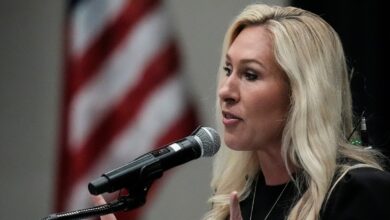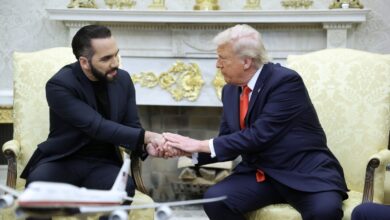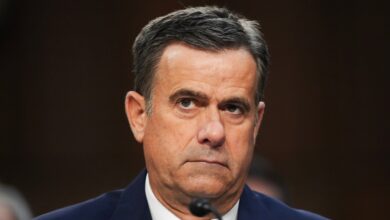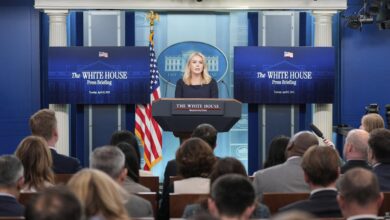Trump’s D.C. Prosecutor Ed Martin Declares: ‘We Will Protect DOGE’
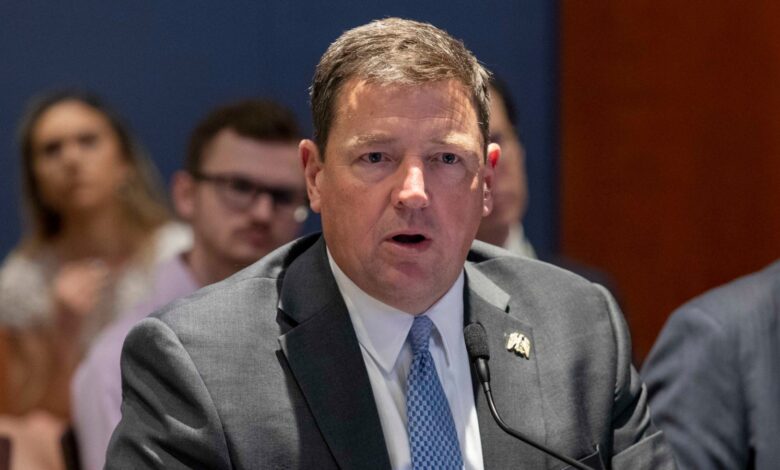
Donald Trump’s nominee to serve as the permanent top federal prosecutor for the District of Columbia is promising to use the full breadth of his powers to “protect DOGE” and “hold accountable those who threaten workers.”
In an email obtained by Rolling Stone, former “Stop the Steal” organizer turned interim U.S. Attorney Ed Martin claimed that members of Elon Musk’s so-called Department of Government Efficiency (DOGE) were receiving “despicable” threats.
“We are the D.C. U.S. Attorney’s office; we are the guardians of federal workers. You and I must do whatever possible to ensure that government work is safe for all involved,” Martin wrote Wednesday, as his boss dubiously and unceremoniously fires tens of thousands of federal workers en masse, with little oversight, accountability, or rationale.
“We must protect our cops, our prosecutors, our DOGE workers, the President, and all other government employees from threats against our nation,” Martin added.
The attorney cited a 2020 speech from Senate Minority Leader Chuck Schumer (D-N.Y.) delivered as the Supreme Court considered an abortion rights case, in which the senator addressed conservative members of the court, telling them that they had “released the whirlwind and you will pay the price. You won’t know what hit you if you go forward with these awful decisions.”
Schumer later clarified that the comments referred to political repercussions for their actions, but Republicans portrayed the remarks as an incitement of violence against conservative members of the Supreme Court. In his email, Martin cited the incident as “one of the most abhorrent examples” of threats against government officials in recent memory, and suggested he had opened an investigation into Schumer. “I reached out to Senator Schumer to investigate his threats. He has not yet responded to me,” he wrote.
Martin added that he would be naming his efforts to clamp down on “threats” against federal workers after a line in Schumer’s speech: “Operation Whirlwind.”
“My initiative to hold accountable those who threaten workers is named Operation Whirlwind. We will stop the storm of threats against officials at all levels,” Martin wrote, adding that he was planning a meeting with “our Threat Portal team” to discuss next steps.
Earlier this month, Martin wrote a letter to Musk vowing that his office would “pursue any and all legal action against anyone who impedes your work or threatens your people.”
“We will not act like the previous administration who looked the other way as the Antifa and BLM rioters as well as thugs with guns trashed our capital city. We will protect DOGE and other workers no matter what,” he wrote.
Martin did not provide specific examples of threats against DOGE workers. What is clear is that throughout his career, Martin has crafted an extremely selective — and politically convenient — definition of what constitutes a threat of violence.
Martin — who previously defended Jan. 6 rioters and who is now at the forefront of Trump’s efforts to use the Justice Department to rewrite the history of the Capitol insurrection — did not, for some reason, cite Trump’s instigation of the Jan. 6 assault as an example of a politician’s rhetoric leading to attacks on government officials.
Instead, Martin lamented in the email that his office has been “flooded with threats against those who helped free the Jan. 6 prisoners.” While Martin waxed about “protecting” cops and law enforcement officials, he had no issue with Trump’s blanket pardon for Jan. 6 defendants who assaulted law enforcement officials and threatened lawmakers with death. In fact, upon his appointment as interim D.C. U.S. attorney, Martin fired dozens of DOJ prosecutors involved in bringing Jan. 6 cases to trial.
Martin’s actions are just some examples of Trump delivering on a core 2024 campaign promise: to erase as much of the Department of Justice’s independence as possible, and then to use the department as a tool for protecting his friends and attacking his political enemies.
During the 2024 campaign, according to two people with direct knowledge of the matter, Trump repeatedly told close associates that if he returned to power, he’d ensure his new Justice Department launched a wave of reviews of ongoing criminal cases and prosecutions of “our people.” He wasn’t just talking about the Jan. 6 rioters’ cases, or the famous federal criminal cases against him and his allies; he was also explicitly talking about cases against Republican Party or Trump-friendly figures — cases that had absolutely nothing to do with Trump or Jan. 6. In private conversation, he’d baselessly claim these probes were Democratic retaliation for their proximity to Trump and therefore “illegal.”
During the four years of Joe Biden’s presidency, an array of conservative lawyers and top Trump advisers spent an inordinate amount of time cooking up increasingly novel legal theories and blueprints for how to wield the Justice Department against Trump’s foes, particularly the prosecutors who crossed him, including Alvin Bragg, Fani Willis, Jack Smith, and Letitia James. One such idea, according to two other sources familiar with the matter, was to potentially sic the DOJ civil rights division on some of these prosecutors and Trump nemeses — under the premise that the prosecutors had violated Trump’s civil rights.
About a month after the 2024 presidential election, Trump announced that he would nominate one of his own lawyers, Harmeet Dhillon, for the DOJ role of Assistant Attorney General for Civil Rights. He also nominated staunch ally Matt Gaetz to serve as attorney general, before Gaetz pulled his name from contention amid a firestorm of scrutiny around a congressional probe into his alleged sexual relationship with a minor. Trump then nominated Pam Bondi, one of his impeachment lawyers, to fill the role.
Bondi was confirmed and sworn in earlier this month. Trump signed an executive order on Tuesday directing independent government agencies to abide by his and Bondi’s interpretation of the law — not that of the court system.

